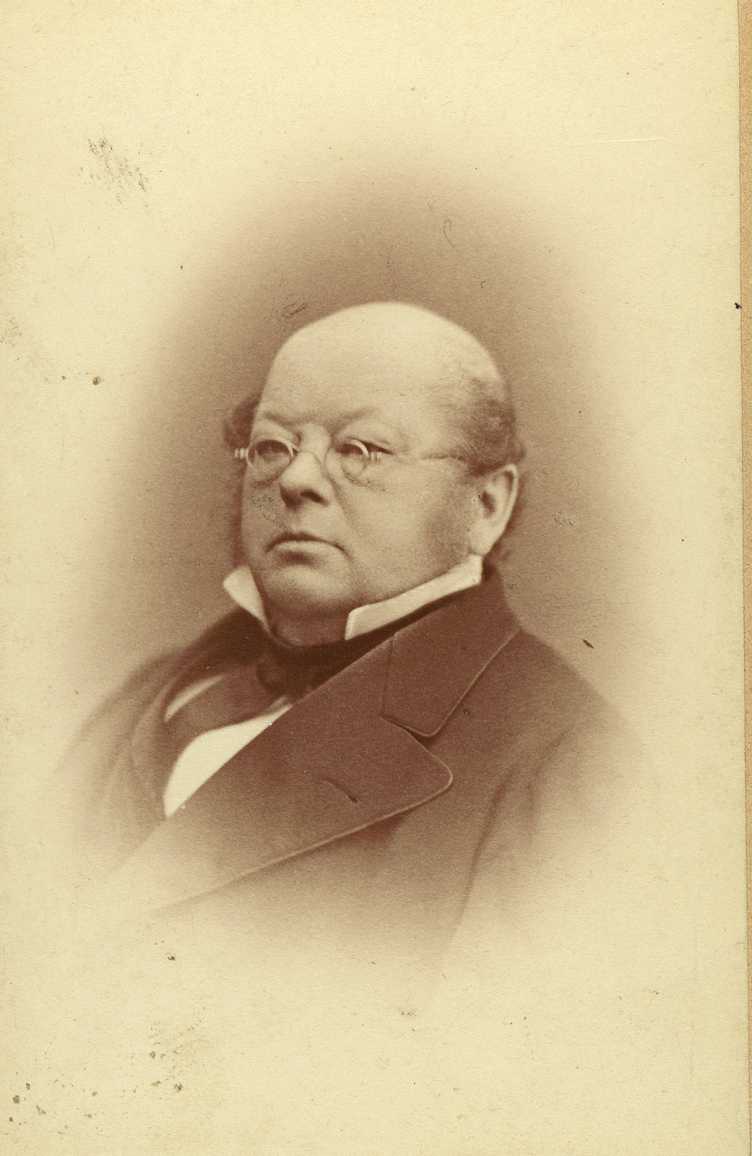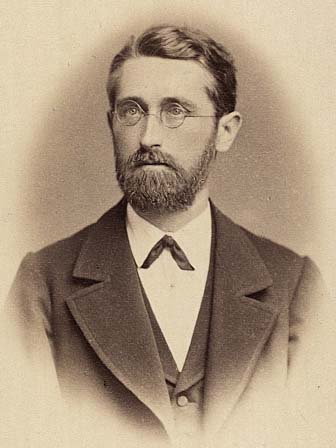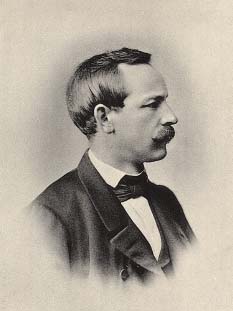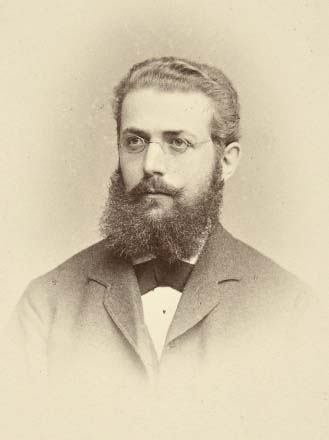First decades
Mathematics as an auxiliary science
The Federal Polytechnical School was founded in 1855 with the intent to educate professionals and engineers for the emerging industry of the young state. Since the newly established institute was regarded as a school, there were teachers rather than professors, and pupils instead of students. Initially, mathematics was not at the centre of the institute's efforts, playing the role of a mere auxiliary science and aiming to be close to practice.
Together with physics and the other natural sciences, mathematics resided in the then philosophical and political science department VI. Even though the school's main focus was on educationg engineering students, mathematics teachers for preparatory schools were trained to raise the level of incoming students in the longer term.
Importance of mathematics heightens

The importance of mathematics at the Federal Polytechnical School changed when Johann Karl Kappeler (1816-1888, in office 1857-1888) became President of the Swiss School Board (today: ETH Board). Kappeler recognized the importance of a broad theoretical basis – particularly in mathematics and physics – for the engineering subjects. When appointing new professors or faculty members, he attached great importance to the candicates' scientific background. On a number of occasions, he won promising young mathematicians from Germany for the Federal Polytechnical School.

Kappeler appointed Richard Dedekind (1831-1916, in office 1858-1862) following the advice given by Peter Gustav Lejeune Dirichlet. Dedekind was in charge of the annual comprehensive introductory course in differential and integral calculus. He was the first of many young German mathematicians, who started their career at the Federal Polytechnical School and later took over influential professorships in Germany.
Mathematics as an independent science

Elwin Bruno Christoffel (1829-1900, in office from 1862-1869) was Dedekind’s successor. With the support of Kappeler, Christoffel introduced a mathematics seminar, where mathematics should be pursued as an independent science, regardless of its possible applications in engineering. This was part of a realignment of Department VI, which was then renamed Department for subject teachers in mathematics and science. The list of prominent mathematicians at the Federal Polytechnical School continues with Emil Prym, Hermann Amandus Schwarz, Heinrich Weber, Ferdinand Georg Frobenius and Friedrich Hermann Schottky.

For a substantial part of his time in Zurich, Georg Ferdinand Frobenius (1849-1917, in office 1875-1892) was head of the mathematical seminar.
His departure to Berlin in 1892 was a great loss for the Federal Polytechnical School. On that occasion, the school board noted in its minutes that Frobenius contributed significantly to securing and increasing the scientific reputation of the Federal Polytechnical School during his 17-year tenure.